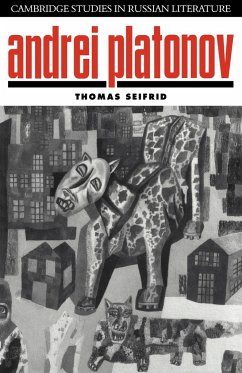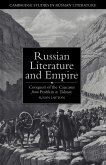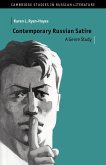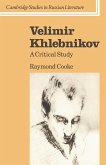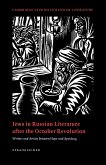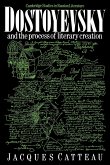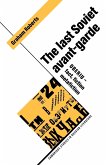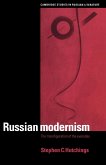This is the first study in English of a writer who belongs to a Russian philosophical tradition that includes Bakhtin and Pasternak.
The Soviet writer Andrei Platonov (1899-1951) belongs to a Russian philosophical tradition that includes such figures as Vladimir Solov'ev, Mikhail Bakhtin and Boris Pasternak. This study investigates the interrelation of themes, imagery and the use of language in his prose. Thomas Seifrid shows how Platonov was particularly influenced by Russian utopian thought of the late nineteenth and early twentieth centuries, and how his world view was also shaped by its implicit dialogue with the 'official' Soviet philosophy of Marxism-Leninism, and later with Stalinist utopianism. He discusses how in Platonov's masterpieces of the late 1920s and early 1930s linguistic parody comes together with existential angst and dystopian doubts about the course of Soviet history. The study concludes with consideration of the works Platonov wrote from 1934 to 1951, in the age of socialist realism. In these, he manoeuvred to preserve some of the essentials of his earlier world view and verbal manner while fusing them to the literary formulae that were expected of him.
Review quote:
"This book is a very welcome addition to Platonov studies, utopian studies, and the study of early twentieth-century Russian intellectual history. Building on a number of previous works, Seifrid does a convincing job synthesizing the literary and philosophical currents within which this writer, so unique and difficult to place, should be interpreted....this is a very valuable addition that, it is hoped, will encourage inclusion of Platanov in syllabi of courses and seminars on utopia."
Utopian Studies
Table of contents:
Preface; List of abbreviations; Introduction: the problem of reading Platonov; 1. Consciousness and matter: Platonov in Voronezh and Tambov (1917-1926); 2. Learning the language of being (1926-1927); 3. Chevengur and the utopian genre; 4. Platonov and the culture of the Five-Year Plan (1929-1931); 5. 'Socialist Realist' Platonov (1934-1951); Conclusion; Notes; Select bibliography; Index.
The Soviet writer Andrei Platonov (1899-1951) belongs to a Russian philosophical tradition that includes such figures as Vladimir Solov'ev, Mikhail Bakhtin and Boris Pasternak. This study investigates the interrelation of themes, imagery and the use of language in his prose. Thomas Seifrid shows how Platonov was particularly influenced by Russian utopian thought of the late nineteenth and early twentieth centuries, and how his world view was also shaped by its implicit dialogue with the 'official' Soviet philosophy of Marxism-Leninism, and later with Stalinist utopianism. He discusses how in Platonov's masterpieces of the late 1920s and early 1930s linguistic parody comes together with existential angst and dystopian doubts about the course of Soviet history. The study concludes with consideration of the works Platonov wrote from 1934 to 1951, in the age of socialist realism. In these, he manoeuvred to preserve some of the essentials of his earlier world view and verbal manner while fusing them to the literary formulae that were expected of him.
Review quote:
"This book is a very welcome addition to Platonov studies, utopian studies, and the study of early twentieth-century Russian intellectual history. Building on a number of previous works, Seifrid does a convincing job synthesizing the literary and philosophical currents within which this writer, so unique and difficult to place, should be interpreted....this is a very valuable addition that, it is hoped, will encourage inclusion of Platanov in syllabi of courses and seminars on utopia."
Utopian Studies
Table of contents:
Preface; List of abbreviations; Introduction: the problem of reading Platonov; 1. Consciousness and matter: Platonov in Voronezh and Tambov (1917-1926); 2. Learning the language of being (1926-1927); 3. Chevengur and the utopian genre; 4. Platonov and the culture of the Five-Year Plan (1929-1931); 5. 'Socialist Realist' Platonov (1934-1951); Conclusion; Notes; Select bibliography; Index.

